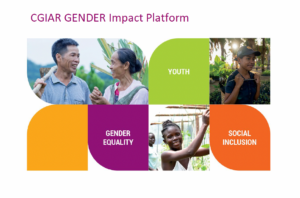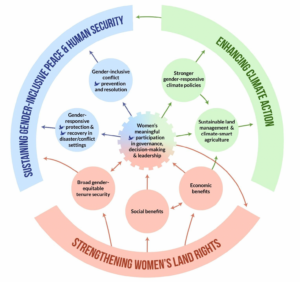Women’s empowerment and gender equality are key goals for development and human rights. However, a significant gap still exists in achieving these twin goals. Formulating appropriate strategies for women’s empowerment requires first understanding context-specific patterns and sources of disempowerment. We use data collected using a questionnaire survey from 1653 households in Rangpur and Rajshahi districts in Bangladesh. Guided by an analytic tool that measures women’s empowerment, inclusion and agency (the project level Women’s Empowerment in Fisheries and aquaculture Index (pro-WEFI)), and using seven empowerment indicators, we provide findings on the status of women’s empowerment, participation, and engagement in aquaculture in Bangladesh. Results show that women were highly involved in making household decisions, mainly jointly with their husbands.
However, data suggest a substantial gap in women’s access to financial services, in participation in aquaculture activities, and in access to and control over productive capital and remuneration for aquaculture labor. Finally, despite some women achieving adequacy on some indicators, most women in fish farming households in Bangladesh lack adequacy on many of the selected indicators.
Authors: Lucy Njogu, Rahma Adam &Cathy Rozel Farnworth
Source: Aquaculture International
https://doi.org/10.1007/s10499-024-01467-7




